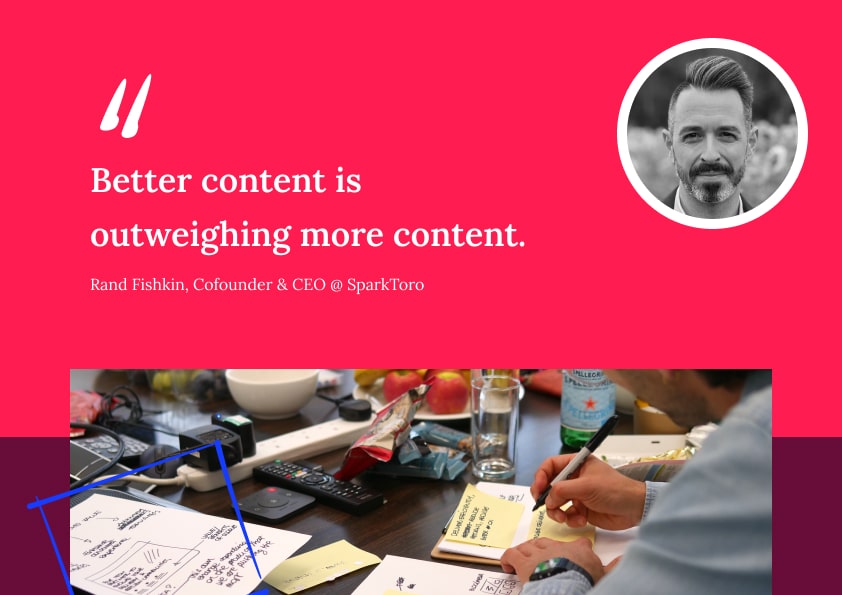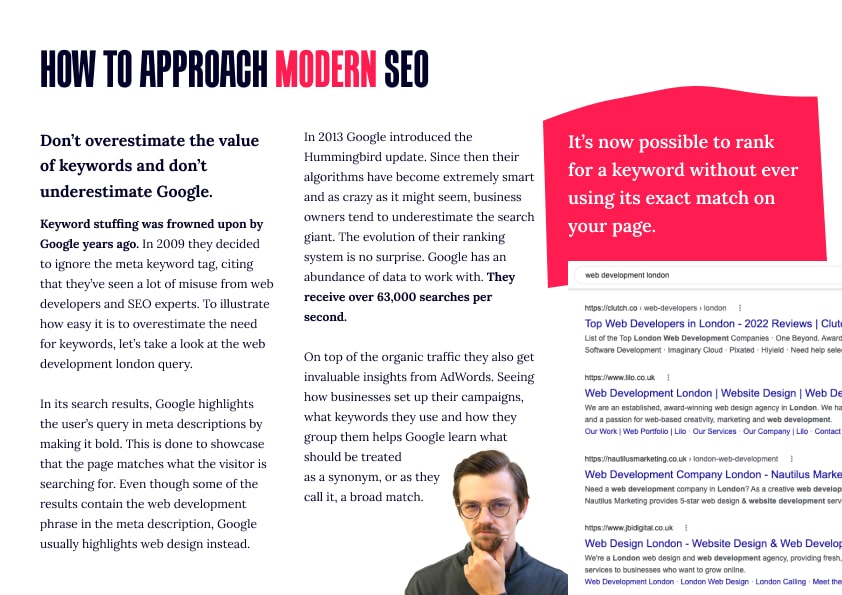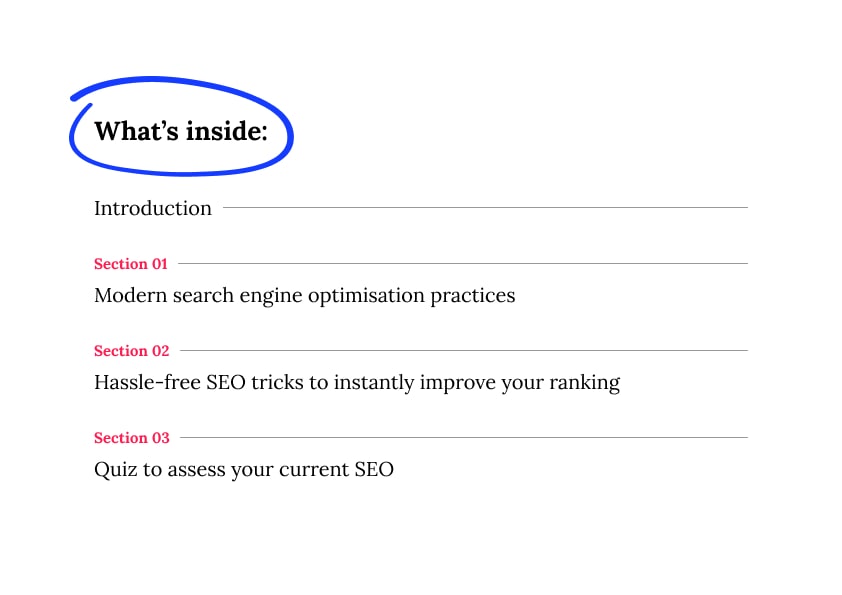Find out if you’re wasting your Google Ads budget
It’s not uncommon for companies to “lose” money on digital advertising. Measuring campaigns for brand awareness is hard. Sometimes, there’s no way to tell that your latest and greatest sale visited the website from an ad a year ago. But for businesses selling products or SaaS subscriptions, calculating the profitability of ads on Google and other services is critical. Our simple calculator helps you do it from scratch in just minutes. Written by Dawid ZimnyCheck if your Google Ads are profitable
How to tell if my Google Ads will be profitable?
The answer everyone hates is: it depends. There are multiple purposes for ad campaigns, and some enterprises even agree to run them at a loss when applicable.
But let’s get down to earth and talk about a situation where you have a monetary gain from the action users take on your website. This can be a project, a purchase, a subscription – anything. Here are the steps to check if your Google Ads keyword is profitable.
1. Calculate your Conversion Value
This is the meat of it. You need to know how much each conversion is worth to figure out whether you should run ads for a certain keyword. It’s a simple monetary value… simple for straightforward conversions such as a purchase or a subscription.
But what if you’re in the services industry, or if your site generates leads and the rest of the magic happens via your sales team? We’ve explained calculating conversion value in detail, including two calculators.
2. Check your Cost Per Click
Ongoing campaigns: You can check for the Average CPC in the dashboard of Google Ads (or other applicable advertising platforms). Simple enough.
Future campaigns: CPC estimation is not the most reliable. The cost varies by the minute – new advertisers join the pool, companies pause their campaigns, search traffic increases, etc. There are too many factors to count and probably even Google themselves can’t predict the price.
But a guesstimate is better than being in the dark. Google offers you their Keyword Planner where you can get a rough idea of how much you will pay. It can be a wide range, but at least it gives you some idea. Here’s an example:

You can act on this information in two ways:
- calculate profitability based on the “worst” case scenario (the high range)
- find a middle point between low and high ranges
Whichever option you choose, remember to always take it with a pinch of salt. The £7.57 high range bid above is not guaranteed – you could still pay more than that!
3. Get your Click-through Rate
Now this one is tricky, hence the “Important” label.
CTR is only reliable for ongoing campaigns with a decent sample size. Various sources cite “average” or “good” values at anywhere between 3% and 5%. Would we recommend using any value from that range? Probably not.
If you have to use a guesstimate of a click-through rate for an upcoming campaign, use your past values from other ads. This won’t be very reliable either, but it covers several variables – namely the quality of your handcrafted ads.
Use “generalised” market averages as a last resort and stick to the lower ranges. Just like with the cost per click, we want to consider worst-case scenarios.
Have you successfully optimised your Google Ads spend?
Share how you’ve done it in the comments. I’ve asked Tomasz to do it for our use case – hopefully, it helps you get the most bang for your buck.
4. The Conversion Rate of Paid Traffic
Ongoing campaigns: If you have set up conversion tracking in Google Ads, you’ll see the value directly in your panel. Alternatively, use Google Analytics (or your analytics software of choice) and filter visits by Source (select Paid).
Future campaigns: Estimating conversion rate out of thin air is probably more unreliable than estimating Click-through Rate. If you don’t have any historic paid traffic statistics, aim for industry standards. In ecommerce the values hover around 3% but your mileage may vary so be sure to find research relevant to your business.
Google claims an average of 800% ROI on Ads
If you’re wondering how much you should be earning, Google claims 800% is the average. Other sources often cite a more conservative 100%. This is much more reasonable since every business is unique and accurate ROI tracking will be a domain of the more advanced Google Ads users. The data will be heavily skewed towards the best-performing advertisers.
Diversify your traffic with our FREE PDF
Sign up for our newsletter and get immediate access to “Outdated SEO Practices Marketers Should Avoid”, which includes a quiz to test your knowledge of SEO basics.
Originally published Nov 25, 2022 3:23:41 PM, updated May 8 2024.





